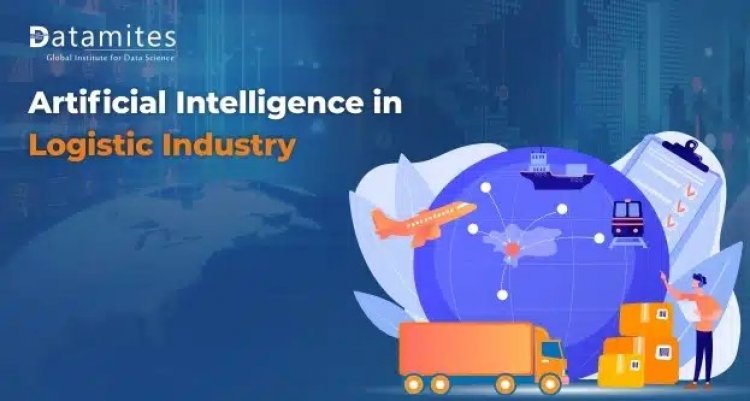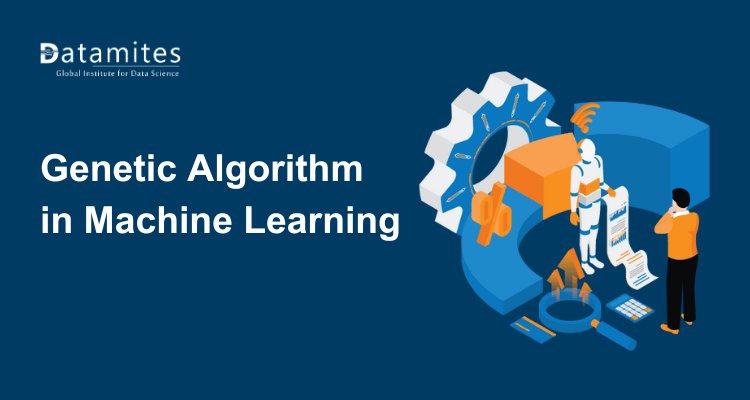Artificial Intelligence in Logistics Industries
Artificial Intelligence is transforming the logistics industry by enhancing supply chain efficiency, optimizing route planning, and improving demand forecasting. Discover how AI-driven solutions are revolutionizing logistics operations.

Artificial Intelligence is a technological tool that mimics human action performed by a computer system. It is also called machine intelligence or the human intelligence that focuses on computer vision, natural language processing, and natural language understanding. AI uses basic algorithms that drive softwares to inspire new types of data to work faster than human beings. According to a Forbes report, AI was termed in the year 1956 by John McCarthy and he first came up with the idea of the “ Thinking Machine” in a research workshop.
AI in the logistics industry is used in identifying profits, negotiable shipments, manageable carrier contracts, and procurement rates. The use of AI in the logistics industry is to process data and enhance income rates. It also adjusts forecast demand, and customer orders, and reroutes shipments.
Introduction to AI in Logistics Industries:
Artificial Intelligence is used in logistics industries to supply transportation and meet the demands of the supply chain. AI is so advanced that it will automate driverless vehicles and reduce the cost of transportation. In the logistics industry, AI improves the efficiency of Big Data to process its potential and enhances its strategic decisions. AI replaces drivers and uses robotic machines for better performance. AI helps manage supply chain operations and enhances the workforce enormously.
Global News Wire recently shared a report that says, the standard market size of Artificial Intelligence in transportation and logistics industries surpassed USD 14.79 Billion and is estimated to grow its market economy by the year 2030.
Refer this article: Support Vector Machine Algorithm (SVM) – Understanding Kernel Trick
Everything you need to know about the role of AI in Logistics Industries:
Artificial Intelligence is an advanced technological tool that enables smart operations in logistics industries to boost economic efficiency. Here is the list of the leading role that AI plays in the Logistics Industries:
1. Driverless Vehicles- AI has introduced driverless vehicles to increase the delivery procedure significantly. With the advancement of driverless vehicles, delivery will be fast and it also reduces shipment costs. Driverless Vehicles transports goods from retail locations and factories to its destination centers. Driverless vehicles reduce the risk of transportation hassles and impediments.
2. Robotics- Robotics is interconnected with intelligent machines which is an enhanced application of AI that processes logistics management. The robot can do tasks such as transportation, delivery, packing, picking, routing, and storage. AI robots can perform multiple tasks and evolve successfully. In the logistics industry, AI can execute tricky tasks and replace them with manageable distribution processes to drive data.
3. Big Data- AI in logistic industries generates big data to maintain the data system. A well-maintained data is necessary for data security to drive business decisions. AI in the logistics industry uses data analytics to organize data applications that bring effective delivery processes. It provides data pointers to assist them while traveling which reduces their expense. Data Analytics maintains the cost of fuels, vehicle sensors, and weather forecasting.
4. Risk Management- AI in logistic industries helps organizations manage risk and emphasize supply chain management. AI uses statistical forecast factors like warehousing space, weather, truck driver capacity, inventory, and freight volume to reduce risk and adjusts its circumstances. Uncertain risk is always faced in the logistics industry so AI manages the attempt of risk with the help of AI analytics.
5. Route Optimization- Logistic industries have introduced route optimization processes for easy work but with AI, the shipping route gets easier as it uses efficient data to fit in the equation. AI uses route optimization software to keep track of travel routes, weather reports, traffic reports, tracking locations, etc. The AI technology tool is so advanced that it can accurately predict when the time is to stop for fuel, lunch, change the route or break, etc.
Read this article: How AI is refining the Finance and Banking Sector?
What are the benefits of AI in logistics Industries?
- Better customer service- In logistics industries, people mainly rely on trusted service providers. As the Artificial Intelligence technology tools are trending and are efficient in the business market, it provides the best transport service to businesses and their customers. AI gains the trust of customers by providing them with loyal and personalized service. AI helps the customers according to their purchase experience.
- Shipment and delivery- Logistics industries use the help of AI tech tools to enhance the productivity of shipment and delivery. AI tools are advanced enough to track traffic roads and it also reduces fuel consumption. With the help of the route optimization technique, it identifies the route and free time to enhance customer service.
- Marketing and sales optimization- The use of drones is gaining high attention in logistic industries. AI has dependable tools to enhance the delivery process in a short time. Drones are used to deliver different pharmaceuticals and other resources safely.
- Back-office automation- The advanced benefits of AI are rooted in the logistic industries to maintain the workforce, email, billing, and other operating systems. In logistic industries, AI processes data to drive easy tasks and save the time of supply chain organization. Through back-office automation also saves time and money.
- Smart Roads- Smart roads can easily help in logistic industries because clearer and plain roads will reduce the delays in product supply and satisfy the need for customer services. Smart roads are prevented by solar panels to avoid slipperiness during winter. The use of AI is used here to promote driverless cars for fast product delivery.
Also refer this article: Understanding Auc Roc Curve
What is the future of AI in logistics Industries
Artificial intelligence is moulding its technic tool to enhance productivity in many industries and logistics is one of them. With the help of AI, supply chain management has uprooted to drive high in the upcoming future. The future of AI is sounds good, bringing renovation to the logistics industries. It saves time, boosts productivity, tracks shipment and delivery time, improves its efficient value chain, etc. The advantages provided by AI help to enhance the logistics industry and bring customer serve the customers right.
According to International Finance Magazine, AI will develop its sector to provide a new paradigm in the logistics industry. The significant growth of AI has possibly introduced tech tools to enhance logistic firms. It has an effective solution to embed the high delivery package which allows drones, tracking tools, driverless cars, etc to bring productivity to the logistics industry. The automation process differently innovates the business market and contributes highly to supply chain management.
In view of the a Glassdoor report, the average salary of an AI in logistics industries is $ 119,297 annually. The need for AI professionals is high and it will prominently increase its value in near future.
Also read this article: What is a Gradient Descent?
Conclusion
AI and Machine learning is the modern technological tool which has brought efficiency and growth to industrial firms. The new tools specify more clear data to renovate the idea through decision-making and strategic planning. The logistics industry highly uses AI tools to bring customer satisfaction and growth in productivity. With the rapid use of digitalization, entire sectors including education, health, industrial firms, and business markets have accelerated their growth to a higher position.
DataMites is a professional and global institute that brings trending courses in data science, artificial intelligence, python, and machine learning. DataMites courses are accredited by IABAC and provide certification to students at the end of training. The students get assistance from expert professionals, guidance for job placements, handed with case studies, and specialized syllabi to understand the domain.
DataMites Training Institute offers an extensive Artificial Intelligence course accredited by globally recognized certifications, ensuring industry credibility. The program encompasses machine learning, deep learning, and AI tools, featuring hands-on projects and expert mentorship. With flexible learning options, including online and classroom training, it caters to both beginners and professionals. DataMites equips learners for AI-driven career opportunities through its prestigious certification.
Artificial Intelligence Course Introduction
Artificial Intelligence Training







